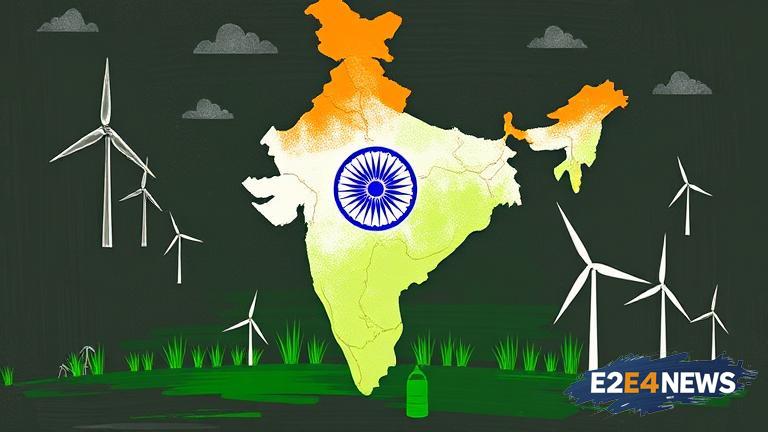The Indian government has expressed its intention to minimize tariffs in the renewable energy sector, a move that is expected to boost the growth of sustainable energy sources in the country. This decision is in line with the government’s goal of increasing the share of renewable energy in the country’s energy mix. The reduction of tariffs is likely to make renewable energy more competitive with fossil fuels, leading to increased investment and deployment of renewable energy technologies. India has set ambitious targets for renewable energy, aiming to achieve 40% of its electricity generation from non-fossil fuels by 2030. The government has implemented various policies and initiatives to support the growth of the renewable energy sector, including the National Solar Mission and the Wind-Solar Hybrid Policy. The reduction of tariffs is expected to further accelerate the growth of the sector, creating new opportunities for businesses and industries involved in renewable energy. The Indian renewable energy sector has already seen significant growth in recent years, with the country becoming one of the leading markets for solar and wind energy. However, the sector still faces challenges, including high upfront costs and limited access to financing. The reduction of tariffs is expected to help address these challenges, making renewable energy more accessible and affordable for consumers. The government’s decision to minimize tariffs is also expected to have a positive impact on the environment, as renewable energy sources emit significantly less greenhouse gases and other pollutants compared to fossil fuels. The growth of the renewable energy sector is also expected to create new job opportunities and stimulate local economies. The Indian government has set a target of achieving 100 GW of solar power capacity by 2022, and the reduction of tariffs is expected to play a crucial role in achieving this target. The government has also announced plans to launch a new renewable energy policy, which is expected to provide further support to the sector. The policy is expected to include measures such as tax incentives, subsidies, and grid connectivity, which will help to promote the growth of renewable energy. The reduction of tariffs is also expected to attract foreign investment in the renewable energy sector, as international companies look to tap into India’s growing market. The Indian government has already received significant interest from foreign investors, with several major companies announcing plans to invest in the country’s renewable energy sector. The growth of the renewable energy sector is also expected to have a positive impact on India’s energy security, as the country reduces its dependence on imported fossil fuels. The reduction of tariffs is expected to make renewable energy more competitive with fossil fuels, leading to increased deployment of renewable energy technologies. The Indian government has also announced plans to promote the use of electric vehicles, which is expected to further drive the growth of the renewable energy sector. The government has set a target of achieving 30% electric vehicle penetration by 2030, and the reduction of tariffs is expected to play a crucial role in achieving this target. Overall, the reduction of tariffs in the renewable energy sector is expected to have a significant impact on India’s energy landscape, promoting sustainable development and energy security. The government’s decision is expected to create new opportunities for businesses and industries involved in renewable energy, while also having a positive impact on the environment and local economies.
